Student Perspectives: Hispanic and Latinx Heritage
As part of Duke’s National Hispanic Heritage Month celebration, we asked our Occupational Therapy Doctorate (OTD) students who identify as Hispanic/Latinx about their background and what they're most proud of.
Their answers underscore our pride in the OTD program—one that is rich with diverse individuals and perspectives that come together to create a unique learning community.
What about your heritage and Hispanic/Latinx identity are most proud of?
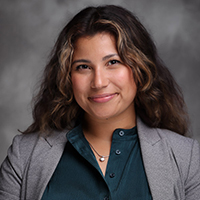
Fatima Al-Sarakbi Hernandez, OTD '26
I love that my Hispanic heritage emphasizes generosity through food sharing and storytelling. Bonding over spicy, colorful, and fulfilling dishes is a cherished aspect of my life
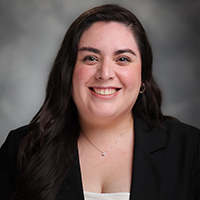 Itzel Grijalva, OTD '25
Itzel Grijalva, OTD '25
I am most proud of the support we give one another. No matter if we are strangers or family. There is an unspoken understanding that our communities face injustices every day. Regardless of these injustices, we treat each other with kindness and support, reminding one another that we are not alone, that the stereotypes are not true, and that there are still individuals who know how you feel and are walking beside you. We are here for one another even when the world is against us. We treat each other like family and remind one another that our community is beautiful and amazing in many ways.
Alyssah Roth, OTD '26
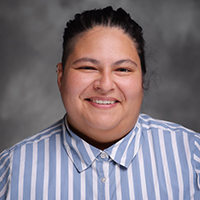
I can’t say that I feel unequivocal pride about being Latine. I think, as with any other identity category, a lot is complicated about it. What I do have unequivocal pride for, however, is being a fronterize—being from the border. It shapes nearly everything about me, including how I move through the world and understand things around me. I am most proud of the people I come from—my biological and chosen family—who have held me in all my forms and taught me how to be good, generous, and care for others.
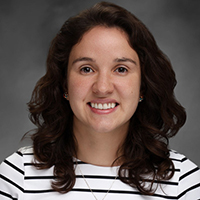
Paola Dávila Uzcátegui, OTD '27
My Hispanic/Latine identity is embedded in the unity and dedication to finding joy despite adversities. In Venezuela, smiles are shared no matter where you come from, and our neighbors are trusted and treated like family. The natural phenomenon of experiencing the Relámpago del Catatumbo (Catatumbo Lightning) is a remarkable display that can be seen up to 160 nights a year. I believe it exists to strengthen our humanity. Our country's natural beauty and our people's kindness will continue to shape our culture. Venezolanos are a crucial collective force back home and in this country, striving for change, working hard, and fueled by the legacy of our ancestors to preserve and express our culture.
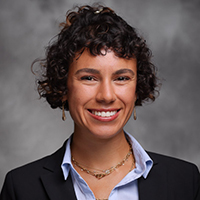
Astrid Giblin, OTD '26
My grandmother, "Lita" as we call her, lived in Puerto Rico with her grandmother until she was 14 years old. Her grandmother, who was illiterate, insisted that Lita learn to read even though she could not help her. At 14, after her grandmother passed away, Lita moved to New York without speaking English and started high school far behind her classmates. When she married my grandfather, the only stipulation her mother gave to my grandfather in condoning their marriage was that Lita continued her education. While raising my mom and uncle, she attended night school and eventually achieved a master's degree in teaching. The only thing that prevented her from receiving her doctorate was an administrative error in the documentation process—she still has copies of her master's and doctoral theses.
One day during my freshman year of college, Lita called me to tell me how proud of me she was. She said she had never forgotten her grandmother’s persistence in securing schooling for her. Seeing my sister and me succeed in college was a testament to how much that dedication to education had become a legacy in our family. As I work towards my doctorate, I am proud to carry this heritage with me, without forgetting the several barriers that Latina women—in and outside of my family—have faced in achieving theirs.